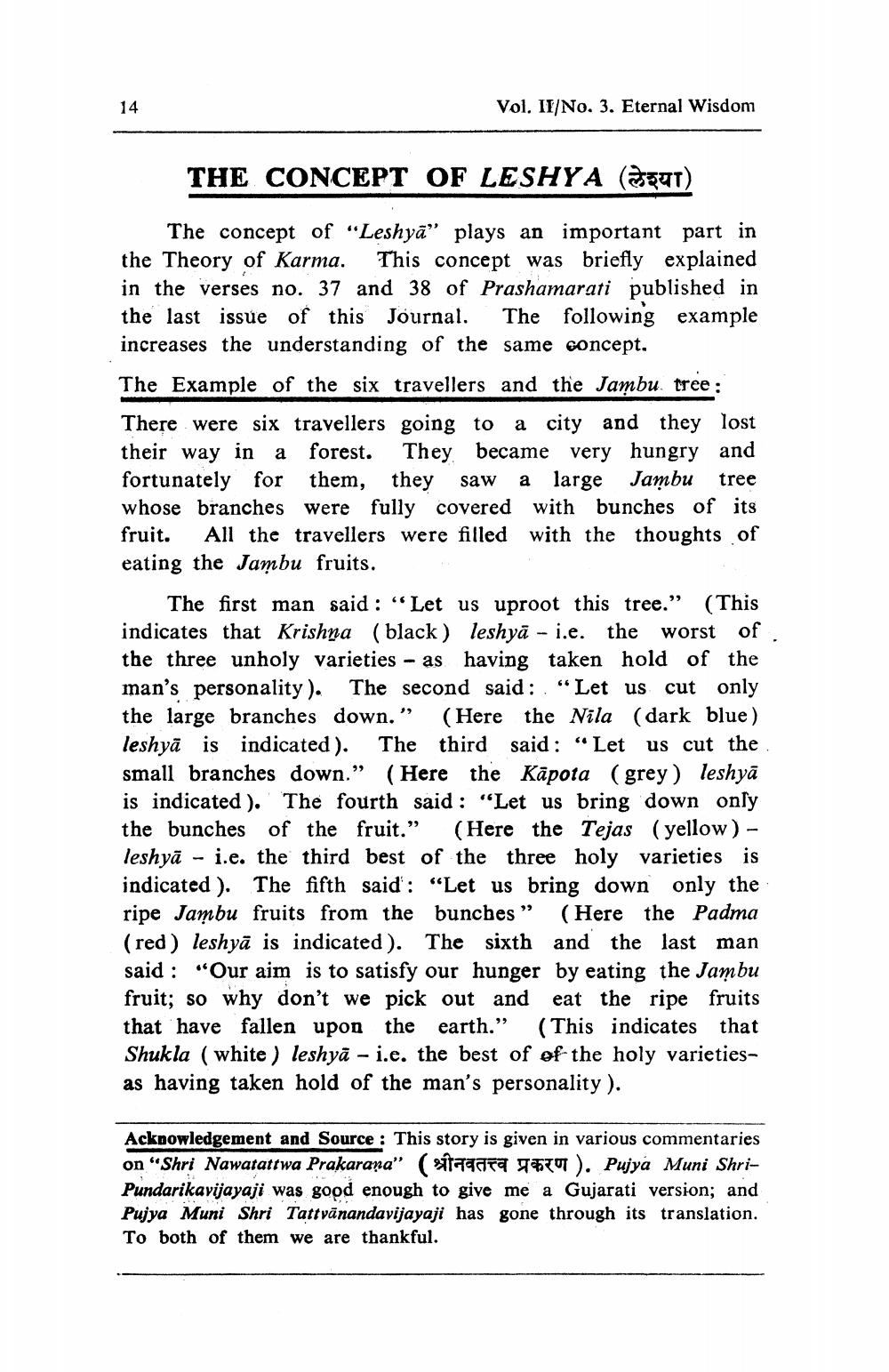Book Title: Concept Of Leshya Author(s): Publisher: View full book textPage 1
________________ 14 Vol. II/No. 3. Eternal Wisdom THE CONCEPT OF LESHYA (UT) The concept of "Leshya" plays an important part in the Theory of Karma. This concept was briefly explained in the verses no. 37 and 38 of Prashamarati published in the last issue of this Journal. The following example increases the understanding of the same concept. The Example of the six travellers and the Jambu tree: There were six travellers going to a city and they lost their way in a forest. They became very hungry and fortunately for them, they saw a large Jambu tree whose branches were fully covered with bunches of its fruit. All the travellers were filled with the thoughts of eating the Jambu fruits. The first man said: "Let us uproot this tree." (This indicates that Krishna (black) leshya - i.e. the worst of the three unholy varieties - as having taken hold of the man's personality). The second said: . "Let us cut only the large branches down." (Here the Nila (dark blue) leshya is indicated). The third said: "Let us cut the small branches down." (Here the Kapota (grey) leshya is indicated ). The fourth said: "Let us bring down only the bunches of the fruit." (Here the Tejas (yellow) - leshya - i.e. the third best of the three holy varieties is indicated ). The fifth said': "Let us bring down only the ripe Jambu fruits from the bunches" (Here the Padma (red) leshya is indicated). The sixth and the last man said: "Our aim is to satisfy our hunger by eating the Jambu fruit; so why don't we pick out and eat the ripe fruits that have fallen upon the earth." (This indicates that Shukla (white ) leshya - i.e. the best of of the holy varietiesas having taken hold of the man's personality). Acknowledgement and Source : This story is given in various comment on "Shri Nawatattwa Prakarana" (tagata 9470). Pujya Muni ShriPundarikavijayaji was good enough to give me a Gujarati version; and Pujya Muni Shri Tattvanandavijayaji has gone through its translation. To both of them we are thankful.Page Navigation
1
